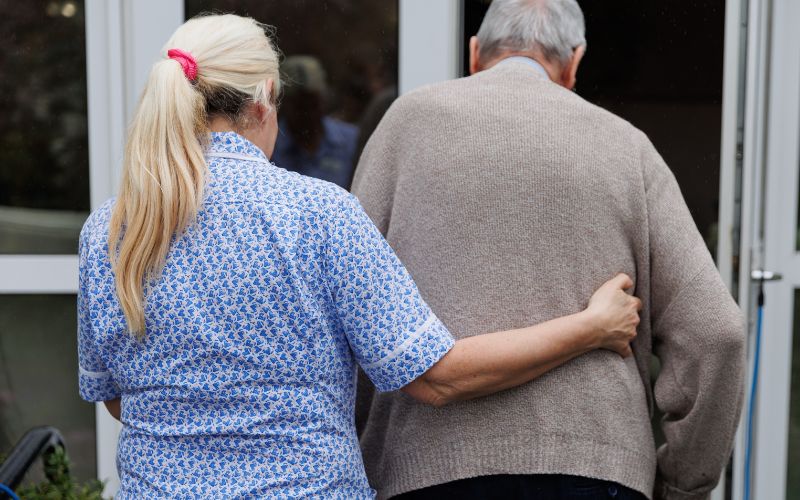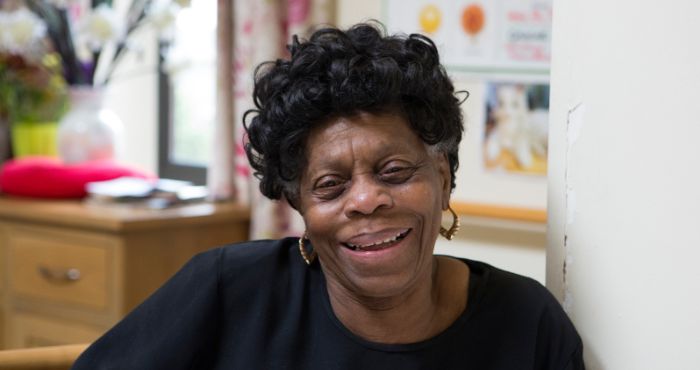What is Advance Care planning?

Advance Care Planning is all about having important conversations about how you would like to be cared for in the future and then documenting the decisions you make. This is important as you might not be able to make or communicate your decisions when the time comes to enact them. An Advance Care Plan could include any or all of the following:
- An Advance Statement
- An Advance Decision to Refuse Treatment
- A Lasting Power of Attorney for Health and Welfare
Who should I talk to?
It is important to think carefully about who you need to include in these conversations. It is a good idea to include your GP or any other medical professionals, such as consultants for various conditions. They will be able to give you an overview from a medical perspective about the kinds of care and support that might be available and appropriate to your specific health needs.
If you have a Lasting Power of Attorney for Health and Welfare you should let them know that you have created an Advance Statement and/or Advance Directive. It's a good idea to share these with them so they can act appropriately on your behalf.
You might want to include your loved ones, family, or close friends in these discussions. It can sometimes feel difficult to start these conversations because people don’t like to think about our loved ones becoming unwell. You can let them know that this is important to you and that if they are not ready to discuss this now, that you would like to put a date in the diary to have the conversation.
Creating an Advance Care Plan can actually be a gift to our loved ones as it takes away any burden of responsibility or guilt they may feel if they are asked to help make a decision about our care.
Important note: Unless you have an LPA for Health and Welfare, no-one has a legal right to be included in conversations about your care. Doctors and medical teams may ask family for their input to help them make a ‘best interests’ decision, but they don’t have to and they don’t have to abide by what the family ask.
The difference between and Advance Statement and an Advance Directive
An Advance Statement is a way to document your wishes and preferences. It may include such things as:
- where you would like to be cared for
- what your routine looks like
- what you enjoy doing/don’t enjoy
- food and drink likes/dislikes (such as how you take your tea or coffee, or that you enjoy a nightcap before bed!)
- how your personal beliefs impact your life and care
- who you would like to be consulted about your care
- any visitors you would like/not like
- music/tv choices etc.
An Advance Directive to Refuse Treatment (sometimes called a Living Will) is a legally binding document in England, Wales and Northern Ireland (as long as it meets certain criteria which means it is valid and applicable)
To be valid an Advance directive must:
- Be made by an adult (i.e. 18+) with mental capacity
- Clearly explain the treatments to be refused and the situations in which those refusals apply
- Include a sentence which states that your decisions apply even if your life is at risk
- Be signed and witnessed.
It will not be found valid if there is evidence to suggest that you have been pressured to make the Advance Directive or if you have done anything which goes against what is written in the Directive.
An Advance Directive becomes applicable if:
- You lack the mental capacity to make the decision in question
- It clearly applies to the situation you are in and the treatment you are being offered
- There is no evidence or reason to suggest that you have changed your mind since the decision was made.
This is where you would state the treatments you do not consent to and the situations in which those decisions apply, for example, decisions about treatment if you develop dementia, a brain injury, or a disease of the central nervous system – you might decide to refuse all life sustaining treatment if you are persistently anxious or agitated, or you are no longer able to interact with others, but you would wish to be given all medical treatment to alleviate pain or distress, or anything that is aimed to ensure your comfort.
Important note: An ADRT is NOT the same as a Do Not Attempt Cardiopulmonary Resuscitation (DNACPR). A DNACPR is a form completed by a doctor to state that CPR is not to be attempted because it is inappropriate (e.g. it is unlikely to succeed and may cause more harm). An ADRT is a document you complete yourself to refuse any medical treatment you indicate.
Creating an Advance Care Plan can seem daunting. It might be difficult to get your head around all the types of situations and treatments you need to think about for an Advance Directive. Thankfully there are organisations out there that can help, some even have a guide you can follow online which will then help you to complete and ADRT at the end.
What to do before beginning your ACP journey
- Start with your values. Most of the decisions we make about our care are based on the values we hold. It can therefore be really helpful to spend some time working out what your values are. You may find myvalues.org.au helpful, it's an Australian website but you can still use it if you live in the UK. It will guide you through some questions to help you determine where your values lie on certain issues which may affect your future care choices.
There are also spaces for you to add your own thoughts after each question. This is important as it helps you get really personal rather than just accepting standard responses.
- Have a conversation with your loved ones. Find out if they have any thoughts on the subject or whether they are ready to do their own Advance Care Planning.
- Consider talking to your GP to see if there is any other support you can access locally while going through the process of Advance Care Planning.
Organisations that can help
Mydecisions.org has online forms you can use and print off for Advance Statements and Advance Decisions.
Beforeigosolutions.com focuses on whole end of life planning, not just medical ACP.
Mygoodbyes.co.uk is a website and app full of information about making future plans.
Advancecareplan.org.uk offers advice and guidance for England and Wales, including a 'jargon buster' and some links to templates.
Myvalues.org.au is an Australian website but fully useable in the UK. This is a great starting point for helping to work our your underlying values.
Page last updated: July 2023.
MHA in your community
Find the care home, retirement community, or support group that’s right for you

